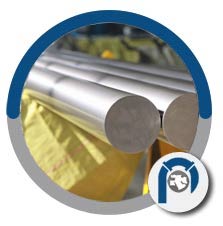Introduction:
Nickel alloys are renowned for their exceptional corrosion resistance, high-temperature strength, and outstanding mechanical properties. These unique characteristics make them indispensable in various industries such as aerospace, chemical processing, oil and gas, and marine applications. In this blog, we will delve into two essential components of nickel alloy applications: nickel alloy round bar and forged fittings. We will explore their features, benefits, and their significance in different industries.
Part 1: Nickel Alloy Round Bars
Nickel alloy round bars are cylindrical bars made from nickel-based alloys. They are widely used due to their excellent resistance to corrosive environments, high-temperature strength, and exceptional mechanical properties. Here are some key features and benefits of nickel alloy round bars:
1. Corrosion Resistance: Nickel alloys exhibit remarkable resistance to corrosion in harsh environments, including acids, alkalis, and seawater. This property ensures the durability and longevity of nickel alloy round bars, making them suitable for applications exposed to corrosive conditions.
2. High-Temperature Strength: Nickel alloys maintain their strength and integrity even at elevated temperatures. This characteristic is crucial for industries where components must withstand extreme heat, such as gas turbines, petrochemical plants, and power generation facilities.
3. Mechanical Properties: Nickel alloys possess superior mechanical properties, including high tensile strength, toughness, and excellent fatigue resistance. These properties enable nickel alloy round bars to withstand heavy loads, vibrations, and cyclic stresses, making them ideal for critical applications in the aerospace and automotive sectors.
4. Versatility: Nickel alloy round bars come in various grades and sizes, providing versatility in design and application. They can be easily machined, welded, and fabricated, allowing for customization and adaptation to specific requirements.
Part 2: Nickel Alloy Forged Fittings
Nickel alloy forged fittings are essential components used to connect and control the flow of fluids in piping systems. They are forged from high-quality nickel alloys and offer numerous advantages:
1. Enhanced Strength: Forged fittings undergo a forging process that aligns the grain structure, resulting in improved strength and durability. They can withstand high-pressure applications, making them suitable for critical systems that require reliable and leak-free connections.
2. Excellent Resistance: Nickel alloy forged fittings demonstrate exceptional resistance to corrosion, erosion, and oxidation. This property ensures their longevity, even in harsh operating conditions involving chemicals, high temperatures, or abrasive fluids.
3. Leak-Free Connections: The forging process used to manufacture nickel alloy fittings enhances their dimensional accuracy and eliminates defects. This results in precise threads and tight connections, minimizing the risk of leakage and ensuring the integrity of the system.
4. Wide Range of Applications: Nickel alloy forged fittings find applications in various industries, including oil and gas, chemical processing, power generation, and shipbuilding. They are commonly used in piping systems, valves, pressure vessels, and heat exchangers.
Conclusion:
Nickel alloy round bars and forged fittings are integral components in industries that require exceptional corrosion resistance, high-temperature strength, and reliable connections. The unique properties of nickel alloys, such as corrosion resistance, high-temperature strength, and mechanical robustness, make them suitable for demanding applications. Whether it is the construction of critical components or the installation of reliable piping systems, nickel alloy round bars and forged fittings play a crucial role in ensuring performance, safety, and longevity.
Investing in high-quality nickel alloy round bars and forged fittings is essential for industries seeking long-term reliability and optimal performance. Manufacturers and suppliers specializing in nickel alloys provide a wide range of options to meet diverse application requirements.
Congrats! You’ve Finished This Blog.







